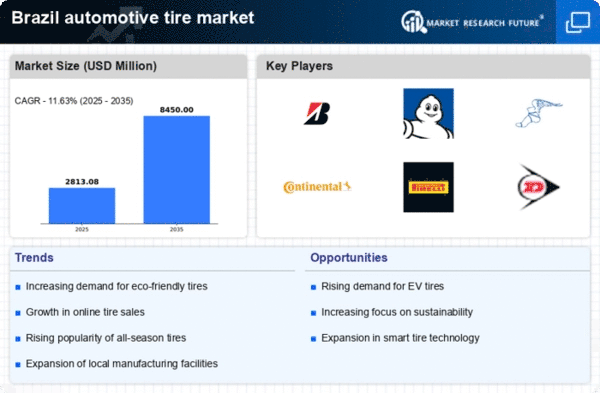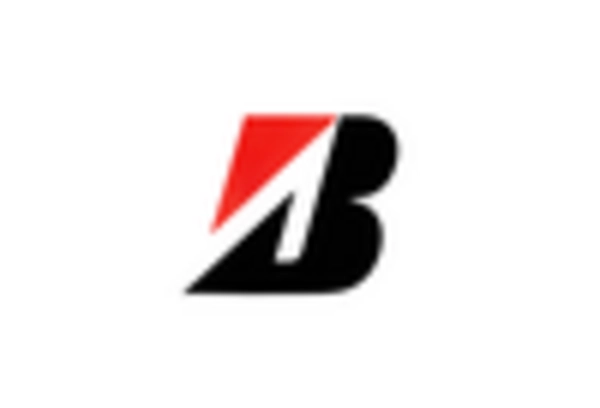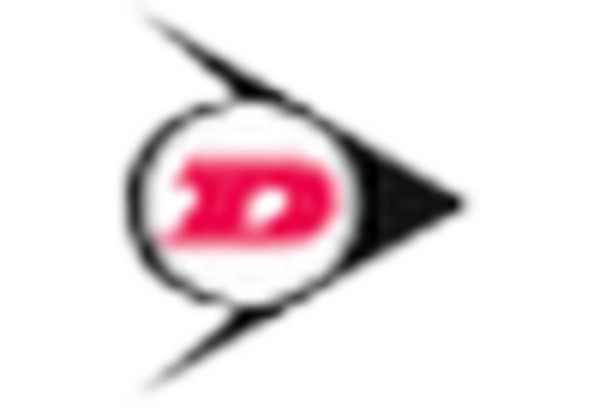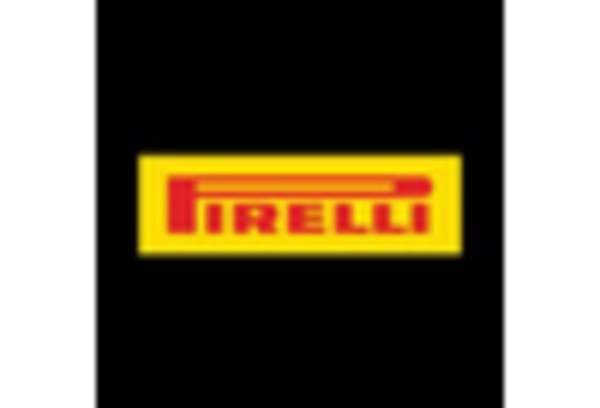Rising Vehicle Ownership
The automotive tire market in Brazil is experiencing growth due to the increasing vehicle ownership among the population. As more individuals acquire personal vehicles, the demand for tires rises correspondingly. In 2025, vehicle ownership in Brazil is projected to reach approximately 45 million units, which translates to a significant increase in tire replacement and maintenance needs. This trend is further fueled by the expanding middle class, which is likely to prioritize personal transportation. Consequently, the automotive tire market is expected to benefit from this surge in vehicle numbers, as each vehicle requires a set of tires. The growth in vehicle ownership not only stimulates demand for new tires but also enhances the market for tire services and accessories, thereby contributing to the overall expansion of the automotive tire market in Brazil.
Infrastructure Development
Brazil's ongoing infrastructure development plays a crucial role in shaping the automotive tire market. The government has been investing heavily in road construction and maintenance, which is expected to enhance the driving experience and increase vehicle usage. Improved road conditions lead to a higher demand for tires that can withstand diverse terrains and weather conditions. In 2025, the Brazilian government allocated approximately $10 billion for infrastructure projects, which is likely to boost the automotive sector, including the tire market. As roads become more accessible, the frequency of travel increases, leading to a greater need for durable and high-performance tires. This infrastructure investment not only supports the automotive tire market but also encourages innovation in tire technology to meet the demands of modern vehicles.
Shift in Consumer Preferences
Consumer preferences in Brazil are evolving, with a noticeable shift towards high-performance and specialized tires. As Brazilian consumers become more discerning, they are increasingly seeking tires that offer enhanced safety, durability, and fuel efficiency. This trend is reflected in the growing popularity of premium tire brands, which are perceived to provide better value over time. In 2025, it is estimated that the demand for high-performance tires will account for approximately 30% of the total tire sales in Brazil. This shift in consumer behavior is likely to drive manufacturers to innovate and diversify their product offerings, thereby impacting the automotive tire market. Additionally, the rise of e-commerce platforms is facilitating easier access to a wider range of tire options, further influencing consumer choices and preferences.
Regulatory Changes and Standards
The automotive tire market in Brazil is significantly influenced by regulatory changes and standards aimed at enhancing safety and environmental sustainability. The Brazilian government has implemented stricter regulations regarding tire manufacturing and performance, which are designed to reduce road accidents and promote eco-friendly practices. In 2025, compliance with these regulations is expected to become a key factor for manufacturers, as non-compliance could lead to substantial penalties. This regulatory environment encourages innovation in tire design and materials, pushing companies to develop products that meet new standards. As a result, the automotive tire market is likely to see an increase in the availability of tires that not only comply with safety regulations but also contribute to environmental sustainability, thereby appealing to a broader consumer base.
Growth of E-commerce in Tire Sales
The rise of e-commerce is transforming the automotive tire market in Brazil, providing consumers with greater access to a variety of tire options. Online platforms are becoming increasingly popular for purchasing tires, as they offer convenience and competitive pricing. In 2025, it is projected that online tire sales will account for approximately 25% of the total market share, reflecting a significant shift in consumer buying behavior. This trend is likely to encourage traditional retailers to adapt their business models to include online sales channels. Furthermore, e-commerce allows consumers to compare prices and read reviews, which may lead to more informed purchasing decisions. As the automotive tire market continues to embrace digital transformation, it is expected that the competition will intensify, prompting manufacturers to enhance their online presence and marketing strategies.
















